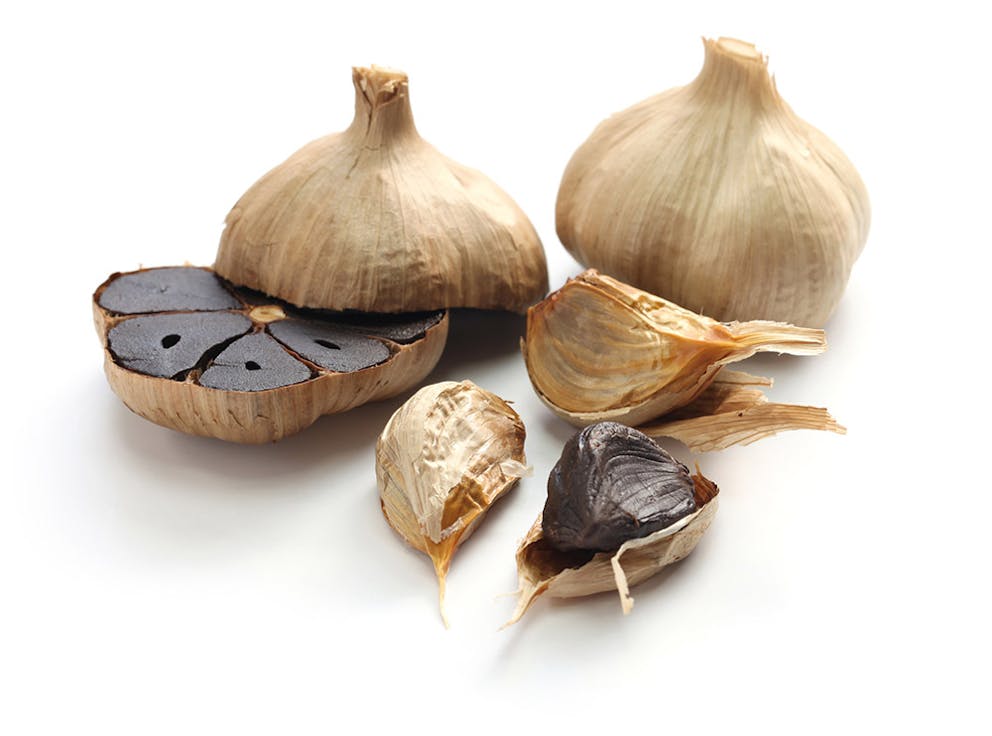9 Warning Signs of Parasites
9 Warning Signs of Parasites
Undisclosed yet pervasive, parasitic infections threaten to upend the well-being of countless individuals worldwide. Why it's essential we learn to recognize the characteristic signs mild or otherwise lest complications transpire and imperil our health.
Though we'd rather not, parasites often gain entry through little-understood avenues tainted food, questionable water sources, or strolling sans socks through areas cursed with the worm duo.
Keep up your guard and familiarize yourself with the characteristic cues of parasitic infections to systematically, progressively expel these scoundrels from your daily existence.
Your health is precious, and unwelcome visitors like parasitic infections can be a major concern. This article will delve into the common signs of these infections in humans, as well as provide guidance on how to prevent and treat them.
Whether you're a concerned parent, a world traveler, or simply someone who wants to stay informed about their well-being, understanding parasitic infections is crucial for maintaining optimal health.
Common Symptoms of Parasitic Infections
Beneath the surface of a parasitic infection lies a complex web of biological and physiological interactions. At its heart, the symptoms of these infections are incredibly varied, with some much more common than others.
Digestive issues
As you're reading this, there's a chance you're carrying a parasitic inhabitant in your gut. Uncomfortable as it may be, parasitic infections can trigger a range of painful symptoms like bloating, gas, and constipation.
Giardiasis, a common parasitic disease caused by Giardia, can also lead to dehydration, vomiting, and bloody stools. Other intestinal parasites like Cryptosporidium and Entamoeba histolytica can also lead to similar digestive issues.

Fatigue and weakness
It starts with subtle fatigue, a creeping lethargy that spreads like a stain, attributed to the insidious presence of parasites in your gut. Feasting on the nutrients in your food, they breed darkness and despair, until even the memory of vital health is lost.
Packed with energy-boosting power, these vital nutrients enable our bodies to function properly and balance our various bodily systems.
Skin problems and itchiness
If you're dealing with unwelcome houseguests, like mites, you might be plagued by red, itchy skin. Scabies, a disturbingly small parasite, is just one representative of this pesky problem, quietly (and aggressively) making itself at home in your skin.
The American Academy of Dermatology lists symptoms of scabies as intense itching (especially at night), a pimple-like rash, scales, blisters, and sores. Cutaneous larva migrans, a skin infection caused by hookworm larvae, can also cause itchy, red, raised tracks on the skin.
Less Common Signs of Parasitic Infections
While not as prevalent as the symptoms mentioned above, there are several other signs that may indicate the presence of a parasitic infection in the human body.
Mood changes and brain fog
Sometimes, parasitic infections can disrupt our emotional balance, causing unexplained mood swings, irritability, and trouble focusing. Infections that affect the gut-brain axis, in particular, can wreak havoc on our mental state.
In many ways, our mental health is closely tied to the microscopic world inside our gut. When parasitic infections disrupt the delicate balance of gut bacteria, it can set the stage for mood disorders and cognitive issues to develop.
Changes in appetite and cravings
Imagine having a parasitic passenger on your meal ticket, manipulating your cravings to up their own chances of survival and reproduction. For some, this uninvited guest might trigger an unexpected increase in appetite or a peculiar hankering for sweet treats.
Will we eventually learn how they work their magic on our insatiable desire? For example, a tapeworm might induce cravings for foods high in sugar to fuel its growth.
Allergic reactions
Nothing is as clear-cut as a parasitic infection; sometimes, it can trigger unexpected reactions in the body, like allergic symptoms like sneezing, runny nose, or skin rashes.
For instance, a study found that certain parasites like helminths can induce an allergic response in the immune system, creating discomfort and unease.
when it comes to defending against parasites, our immune system has a tendency to get overzealous, misidentifying benign substances as enemies and triggering allergic reactions.
The Role of the Immune System in Combating Parasites
The human immune system plays a crucial role in fighting off parasitic infections. This section will explore how the immune system responds to parasites and the importance of maintaining a healthy gut microbiome.
Natural Remedies for Parasitic Infections
Password pharmaceuticals didn't come knocked; ancient cultures would discover natural remedies to counter parasitic infections, leaving a legacy of herbal balm options for treatment.

Garlic and other herbs
Inspired by mother nature's blueprints, humans have designed and experimented with a trepette of potent remedies.
Garlic, as part of a quartet that includes wormwood extract, clove, and black walnut hull extract, stands as an esteemed warrior in the ongoing battle against parasitic organisms.
For instance, garlic effectively demonstrates antiprotozoal properties against severe parasites like Giardia and Leishmania, analyzed in a thoughtful review within Interdisciplinary Perspectives on Infectious Diseases.
The tiny wonders inside garlic, in other words its array of chemical compounds, have the remarkable capacity to impede the survival of parasites.
Maintaining an acidic stomach environment
Keeping the stomach environment acidic can help to kill off parasites, as stomach acid acts as a natural barrier against these organisms. Low stomach acid, or hypochlorhydria, can make you more susceptible to parasitic infections.
To maintain optimal stomach acidity, avoid antacids unless absolutely necessary. You can also supplement with betaine HCl or apple cider vinegar to increase stomach acid levels.
Types of Parasites That Infect Humans
Few of us give much thought to the stealthy unwanted guests that call our bodies home, unaware of the unique effects they can have on our overall health and wellbeing.
Protozoa
The unsuspecting victims of parasitic infections: single-celled protozoa like Giardia and Cryptosporidium have evolved to thrive in our unwary surroundings.
Through tainted water or tainted food, these microbes slip in unnoticed, unleashing a host of unpleasant symptoms diarrhea, nausea, vomiting, and fever.
Some protozoa, like Toxoplasma gondii, can even infect the brain and cause neurological symptoms.
Helminths
Beyond the microscopic world of parasitic worms, helminths are a significant public health concern. These roundworms, tapeworms, and flukes infect various body parts, causing uncomfortable symptoms.
Soil-transmitted helminths like hookworms and whipworms are responsible for reoccurring abdominal issues, persistent discomfort, and chronic digestive disorders.
Schistosomes may not receive the same level of attention as hookworms, but their infections can be just as devastating, destroying vital organs and disfiguring our body.
Ectoparasites
Ectoparasites, such as lice and scabies mites, live on the surface of the skin and feed on human blood. These parasites are highly contagious and can spread through close contact with infected individuals or contaminated items, causing intense itching and visible skin lesions.
Experiencing itchiness and red bumps on the neck and shoulders? Scabies mites have likely snuck in, burrowing deep into the skin to leave their mark. Equally pesky, head lice roam the scalp, leaving humans wondering what's causing their annoyances.
Don't wait to identify the signs of parasitic infections to treat them effectively. Carefully assessing your health symptoms, identifying any potential parasitic infections requires expert attention from your healthcare provider.
Conclusion
Recognizing the signs of parasitic infection in humans is an important step in maintaining your overall health and well-being.
By staying informed about the symptoms and risk factors associated with these infections, you can take proactive measures to protect yourself and your loved ones.
Poor hygiene and neglected self-care can open the door to parasitic infections. By focusing on regular handwashing, proper food preparation, and a clean living environment, you'll be far less likely to invite these unwanted guests into your body.
In case you suspect that you or someone you know may be struggling with a parasitic infection, don't hesitate to seek medical attention.
Given how quickly complications can arise, it's crucial to get an early diagnosis and treatment to prevent any negative outcomes and recover quickly.
When we spread the word about the signs of parasitic infection in humans, we're not just fighting ignorance – we're building a shield against often-overlooked but potentially catastrophic infections.
By sharing our knowledge, we can claim our right to good health and shield ourselves from the silent threats that lurk in the shadows.
Supporting Data
https://pubmed.ncbi.nlm.nih.gov/21673156/
https://academic.oup.com/jimb/article/39/4/567/5994514?login=false
Previous blog
Clear Sinus Congestion Overnight with Just One Teaspoon!Next blog
Is Pesto Keto-Friendly?
Popular
08/21/2024
55.7K views
02/23/2025
46.8K views
11/18/2024
281K views
03/18/2024
11/21/2022




